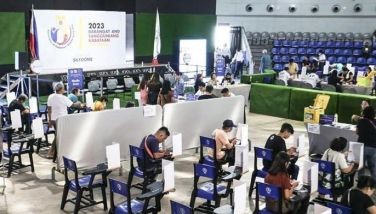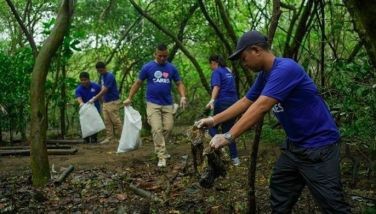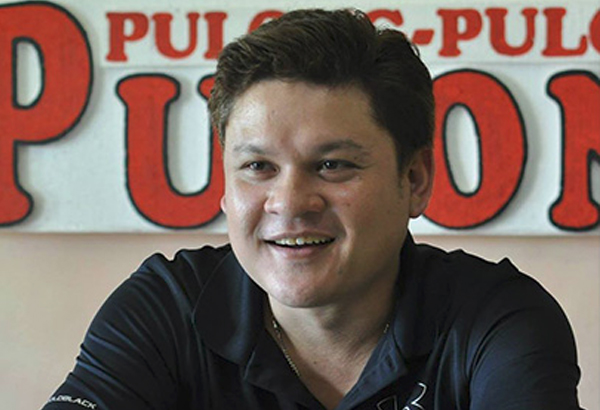‘Silo-ed’ in but out

By the imprimatur of the civilian authority over the entire military personnel, all men and women of the Armed Forces of the Philippines (AFP) have been enjoined against using artificial intelligence (AI) photo generator applications available online. As the head of the Department of National Defense (DND), Secretary Gilberto “Gibo” Teodoro Jr., who exercises direct control and supervision of the AFP, issued the same directives to all DND personnel as well to stop, if they have started already, in the trending use of AI apps.
“All DND and AFP personnel are directed to refrain from using Al photo generator applications, and practice vigilance in sharing information online,” Teodoro stated in his memorandum order (MO) dated Oct. 14. “This seemingly harmless and amusing Al-powered application can be maliciously used to create fake profiles that can lead to identity theft, social engineering, phishing attacks and other malicious activities,” Teodoro warned.
Thus, he believes imposing this security restriction on these online media apps is in no way violating the freedom of expression of individuals.
Teodoro’s move came amid several Philippine government agencies falling victim to ransonware attacks and successful hacking incidents. This wave of recent online and other internet attacks also victimized private companies in the Philippines and elsewhere in the world. Reportedly, it includes foreign cyber criminal groups like the Russian mafia behind the “Medusa” attack on PhilHealth.
But there are fears and suspicions some of the “actors” in the heightened cyberattacks might include State-sponsored ones. AFP chief of staff Gen. Romeo Brawner announced last week plans to upscale the military’s Cyber Security Command to complement the police and civilian anti-cybercrime groups. The AFP chief of staff noted the cyber domain “is one of the more important domains in warfare, especially in the future.”
Citing how such apps can pose privacy and security risks not only to the individual members of the DND and the AFP, Teodoro also earlier placed under “silo” the entire establishments of the DND and the AFP head office and headquarters, respectively. Both located at Camp Aguinaldo in Quezon City, Teodoro told us both the DND and the AFP have been “siloed,” isolated or separated. He declined to go into details of their additional safeguard system.
“It is part of internet hygiene and operational security of DND, AFP,” Teodoro explained during our Kapihan sa Manila Bay news forum last week. Suffice it to say, he described his being “siloed” as the primary reason he could not be reached via SMS or contacted through his mobile phone whenever he is in his office at the DND.
Obviously, it is a technology scrambler or disruptor of telecommunications signals. One can experience zero signal if mobile phone and WiFi are cut off in areas and premises around buildings that install such high-frequency scramblers.
Meanwhile, the Defense Secretary disclosed negotiations with Japan and other foreign governments to enter into the so-called Reciprocal Access Agreement (RAA) are progressing in various stages and still
ongoing. “We would try to get the best synergies as possible, not only bilaterally but also inter-operability with other countries that we have RAA and just as long as it is for the best interest of the Philippines, then I would agree,” Teodoro explained.
According to Teodoro, the Philippine government is also negotiating RAA with Canada, New Zealand, the Netherlands and the United Kingdom (UK). Teodoro likened the RAA to the Visiting Forces Agreement (VFA) and the Enhanced Defense Cooperation Agreement (EDCA) that the Philippines entered into with the United States. Also, the Philippines has its own VFA with Australia.
“The RAA is like a VFA also. So whatever permutations it will take, we will see what happens,” the Defense chief said.
“That is the core of interest that we are pursuing. And Japan has noted, in no uncertain terms, together with a host of other countries, together with the EU (European Union), Canada, the United Kingdom, European countries, some Southeast Asian countries, the aggressive conduct of China in recent times. So we want Japan, of course, as a principal partner but also as a member of the chorus of like-minded voices in the world,” Teodoro pointed out.
The most advanced negotiations to date is the Philippines-Japan RAA that would allow the countries to deploy troops on each other’s territory for training and other operations. “So that is why we want Japan to join us…And because Japan is also an archipelagic country with the same situation. And that is the basis of our RAA,” he quipped.
Early this year, Japan forged its own RAA with Australia and UK, one after the other, that established the procedures for the cooperative activities conducted and defined a status of the visiting forces as well.
“The important thing is for the public to remember that we are here together with Japan and other countries for one thing. That is, to preserve a rules-based international order and to preserve freedom of navigation, and to respect the 200-nautical mile exclusive economic zone of the Republic of the Philippines,” Teodoro underscored.
“Let us remember that the fight of the Philippines in protecting its sovereignty, its territorial integrity and sovereign rights is a fact of world recognition of these rights. Because it is for the world to tell China and other people who want to intrude in to other territories to keep to yourselves, there is enough for every one,” he went on.
He articulated the sentiments on the percolating situation in the disputed overlapping maritime territories in the South China Sea and our own claims around the islands, islets, atolls, reefs and shoals in the West Philippine Sea.
While we assert our sovereign and territorial rights, our communication signals are “siloed” in but out of the West Philippine Sea because Beijing’s signals overpower ours. In cyberspace, that is.
- Latest
- Trending































